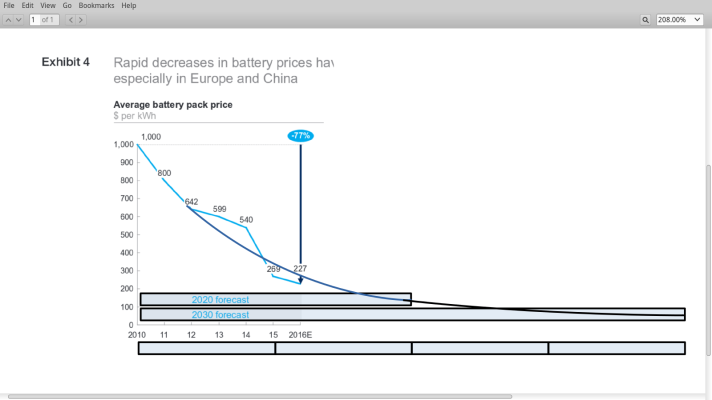Some are estimating battery costs dropping 15%-20% per annum as they have for a while now.
If that pans out by 2028 batteries cost about 10%-20% of what they do now. At that point, any ICE is dead in the water, hybrid or not.
If that pans out by 2028 batteries cost about 10%-20% of what they do now. At that point, any ICE is dead in the water, hybrid or not.



